Примеры анимаций на основе системы частиц
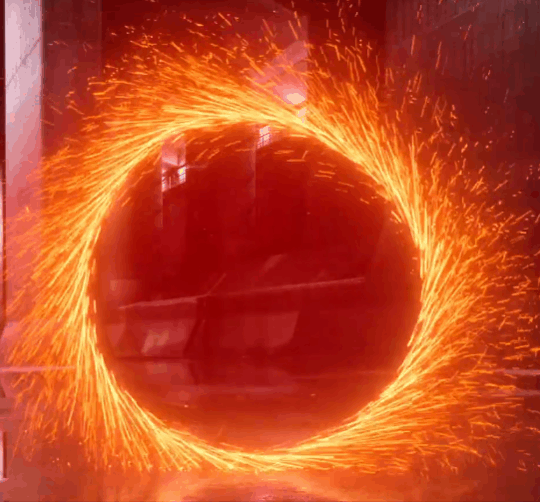
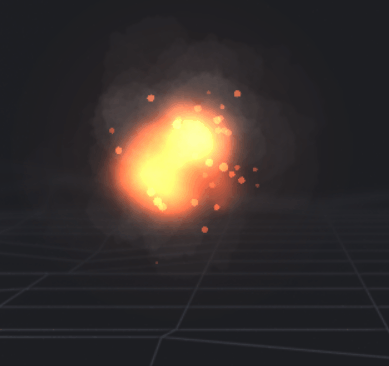
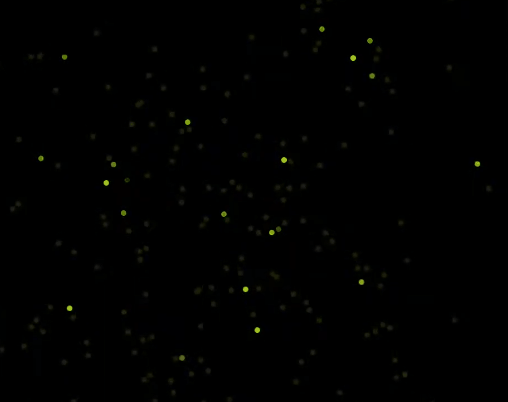
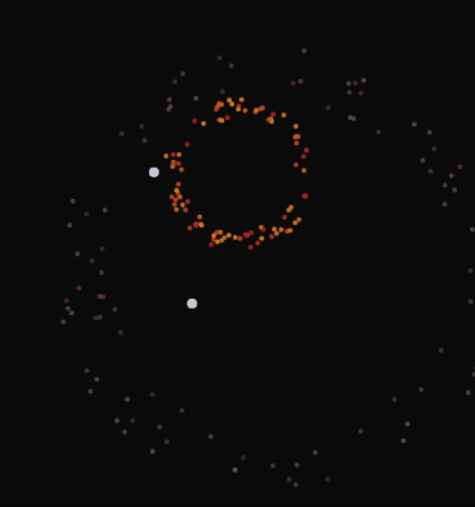
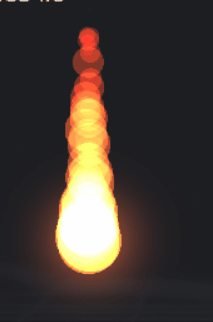
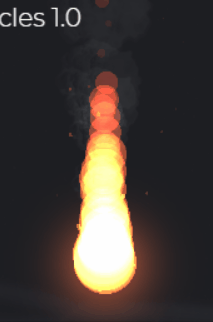
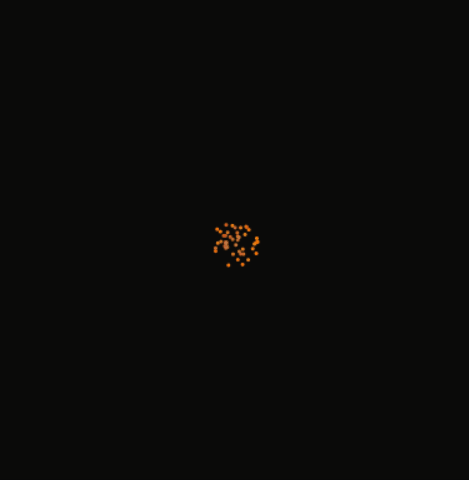
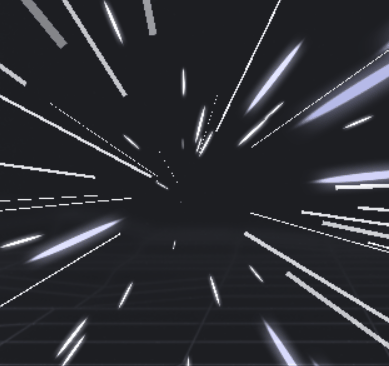
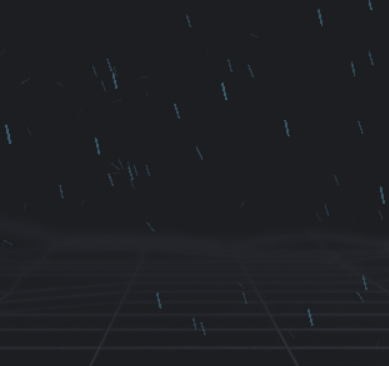
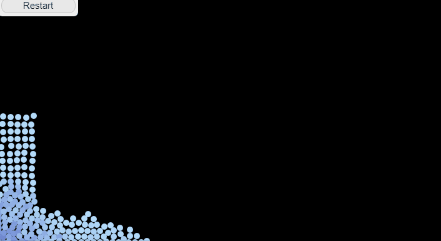
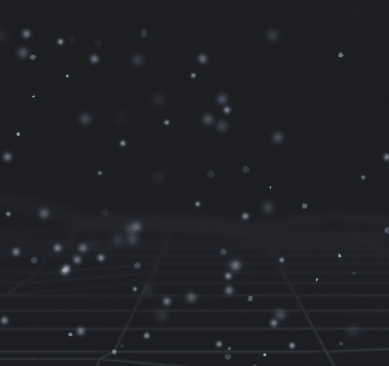













# В терминале pip install drawzero --upgrade --user # На macOs — pip3Либо запустить программу:
import os, sys
python = sys.executable
user = '--user' if 'venv' not in python else ''
cmd = f'"{python}" -m pip install drawzero --upgrade {user}'
print(cmd)
os.system(cmd)

from drawzero import *
from random import randint
from dataclasses import dataclass
NUM_STARS = 300
@dataclass
class Star:
x: float
y: float
z: float
r: int
color: tuple
def gen_star():
'''Создать звезду'''
x = randint(-1000000 // 2, 1000000 // 2)
y = randint(1, 1000)
z = randint(-1000000 // 2, 1000000 // 2)
r = randint(10, 3000)
color = (randint(0, 255), randint(0, 255), randint(0, 255))
return Star(x, y, z, r, color)
def create_stars():
'''Создать массив звёзд'''
stars = []
for i in range(NUM_STARS):
stars.append(gen_star())
return stars
def move_stars(stars, speed):
'''Сдвинуть все звёзды
Если звезда перестала попадать на экран, то заменяем её на новую'''
Vx, Vy, Vz = speed
for i, star in enumerate(stars):
star.x += Vx
star.y += Vy
star.z += Vz
if (
not (1 < star.y < 1000)
or not (-500 < star.x / star.y < 500)
or not (-500 < star.x / star.y < 500)
):
# Вообще это — так себе решение. Но частично работает
stars[i] = gen_star()
def draw_stars(stars):
'''Отрисовать все звёзды'''
# Сортируем звёзды, чтобы те, которые ближе к экрану, отрисовывались позже
stars.sort(key=lambda star: -star.y)
for star in stars:
y = star.y
# Координаты должны быть целыми, это — требование pygame
screen_x = int(500 + star.x / y)
screen_y = int(500 + star.z / y)
screen_r = int(star.r / y)
filled_circle(star.color, (screen_x, screen_y), screen_r)
text('white', 'Press WASD or QE to move', (300, 5), 48)
def process_keys(pressed_keys, speed):
'''Обрабатываем нажатия клавиш
Используем WASD для вверх/вниз/влево/вправо и QE для вперёд/назад'''
if pressed_keys[K.UP] or pressed_keys[K.w]:
speed[2] += 100
if pressed_keys[K.DOWN] or pressed_keys[K.s]:
speed[2] -= 100
if pressed_keys[K.LEFT] or pressed_keys[K.a]:
speed[0] += 100
if pressed_keys[K.RIGHT] or pressed_keys[K.d]:
speed[0] -= 100
if pressed_keys[K.q]:
speed[1] -= 1
if pressed_keys[K.e]:
speed[1] += 1
# Здесь ставим размер экрана
stars = create_stars()
# Текущая скорость, стартуем с 0
speed = [0, 0, 0]
while True:
# Заливаем всё чёрным
fill((0, 0, 0))
# Обрабатываем нажатия клавиш
process_keys(get_keys_pressed(), speed)
# Двигаем звёзды
move_stars(stars, speed)
# Рисуем звёзды
draw_stars(stars)
# Ждём 1/60 секунды
tick()
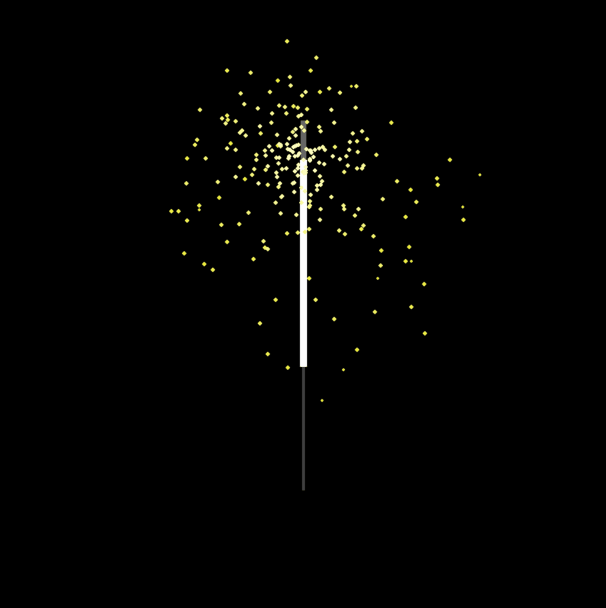
from drawzero import *
import random
import math
from dataclasses import dataclass
START = START_X, START_Y = (500, 200)
G = -2.0
START_SPEED = 20
STICK_WIDTH = 5
TOP = 600
SAFE = 200
GLOW = 15
@dataclass
class Particle:
vx: float
vy: float
cx: float
cy: float
color: tuple
alive: bool
max_age: int
age: int = 0
def __init__(p, move_y):
random_angle = random.uniform(0, 2 * math.pi)
random_speed = random.uniform(START_SPEED * 0.5, START_SPEED * 1.5)
p.vx = math.cos(random_angle) * random_speed
p.vy = math.sin(random_angle) * random_speed
p.color = (random.randint(0, 255), random.randint(0, 255), random.randint(0, 255))
p.cx, p.cy = START_X, START_Y + move_y
p.max_age = random.randint(5, 13)
p.alive = True
def draw(p):
s = [255, 255, 204]
f = [230, 230, 0]
if p.age > GLOW:
color = f
else:
color = [
s[c] * (GLOW - p.age) / GLOW + f[c] * (p.age) / GLOW
for c in (0, 1, 2)
]
filled_circle(color, (p.cx, p.cy), 4 - p.age // 6)
def update(p):
p.cx += p.vx
p.cy += p.vy
p.vy -= G
p.age += 1
if p.cy > 1000 or p.age > p.max_age:
p.alive = False
def draw_particles(particles):
for p in particles:
p.draw()
def remove_particles(particles):
last_good = -1
for cur in range(len(particles)):
p = particles[cur]
if p.alive:
last_good += 1
particles[last_good] = p
del particles[last_good + 1:]
def update_particles(particles):
for p in particles:
p.update()
def draw_stick(done):
border = min(done, TOP - SAFE)
filled_rect((102, 102, 102), (START_X - STICK_WIDTH / 2 - 2, START_Y), STICK_WIDTH + 4, border)
filled_rect('white', (START_X - STICK_WIDTH / 2 - 3, START_Y + border), STICK_WIDTH + 6, TOP - border - SAFE)
filled_rect((64, 64, 64), (START_X - STICK_WIDTH / 2, START_Y + TOP - SAFE), STICK_WIDTH, SAFE)
draw_stick(0)
sleep(1)
particles = []
move_y = 0
while move_y < TOP + 50:
move_y += 1
if move_y < TOP - SAFE:
for __ in range(25):
particles.append(Particle(move_y=move_y))
fill('black')
draw_stick(move_y)
draw_particles(particles)
tick()
update_particles(particles)
remove_particles(particles)